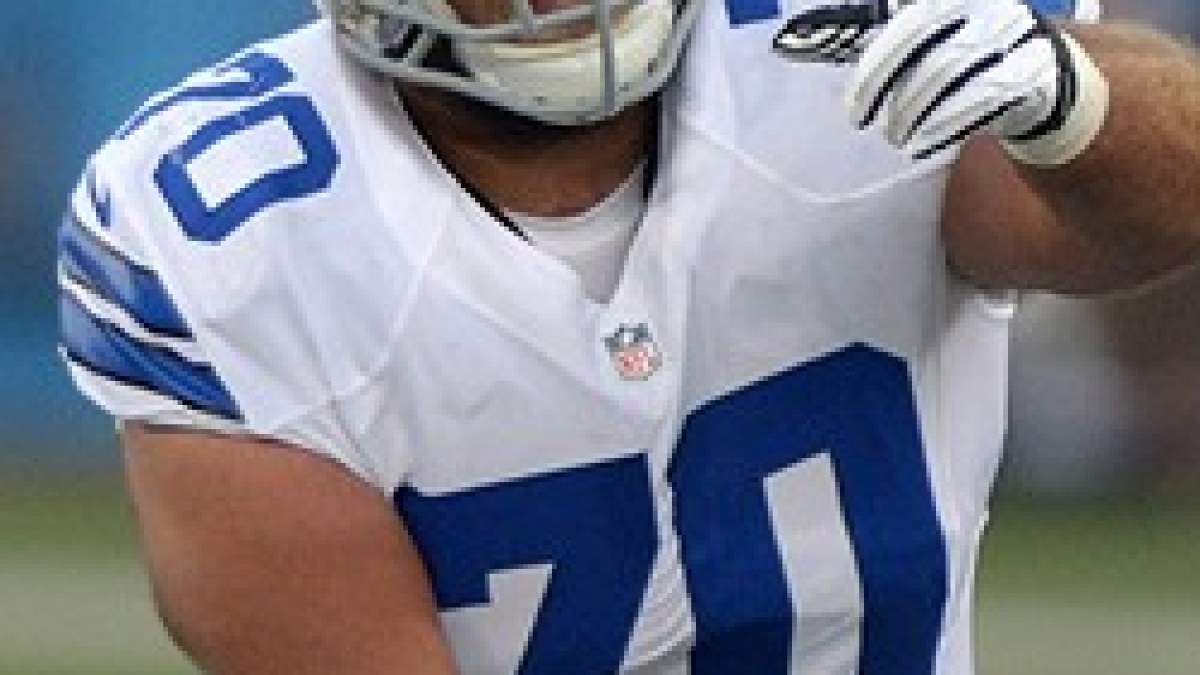With the rookie edge rushers and offensive tackles analyzed in depth, we’re moving to the interior of the offensive line. In recent years, we’ve seen more guards and centers drafted in the first round, with two guards going in the Top-10 a year ago in Jonathan Cooper and Chance Warmack. Unfortunately, Cooper never took a regular season snap after going down to injury during the preseason but Warmack, as well as fellow first round guard Kyle Long started every game for their respective teams.
We also saw the emergence of our Rookie of the Year, Larry Warford, who more than solidified one of the guard spots in Detroit. He clearly stood out as the best of the rookie interior linemen, all the more impressive considering the learning curve often associated with the position. Here’s a look at all of the rookie interior linemen.
This is by no means a definitive draft grade on any of these players, just a one-year look at their role and production, and perhaps a look forward to how they might improve.
[click to: comparison graphics | Chance Warmack | Kyle Long | Larry Warford | Travis Frederick]
Round 1, No. 31: Travis Frederick, Dallas Cowboys
 Role: 16 Starts at C
Role: 16 Starts at C
One of the most scrutinized first round picks of 2013, the Cowboys moved back from their original spot at No. 18 to take Frederick with the No. 31 overall pick in the draft. It was a mixed bag for Frederick who showed extremely well as a run blocker, but took his lumps in pass protection. For the most part, however, he silenced critics with a stellar overall season and continued improvement in the passing game should make the pick a worthwhile one for the Cowboys.
Pass Blocking
Grade: -6.4
Pass Block Snaps: 667
Total Pressures: 24
Sacks: 4
Hits: 2
Hurries: 18
Pass Blocking Efficiency: 97.0
While it was an impressive rookie season for Frederick, he still has a ways to go in pass protection. He graded negatively in 10 of his 16 games including five games in the red and his -6.4 pass blocking grade ranked fifth from the bottom among qualifying centers. Of his 24 surrendered pressures, nine came to his left, eight to his right, and five came through bullrushes so there was no clear weakness other than pass protection as a whole which must improve moving forward.
Frederick beaten in pass protection:


Run Blocking
Grade: +17.9
Run Block Snaps: 358
This is where Frederick really shined. He was outstanding when asked to execute reach blocks in the Cowboys’ zone scheme, often showing the ability to seal shaded defenders at the point of attack. He also performed well once at the second level. Overall, he graded positively in all but three games as a run blocker, with only one game in the red and his +17.9 run blocking grade led all centers. His 2013 numbers are eerily similar to Texans center Chris Meyers who has ranked among the league’s best centers over the last few years; Frederick has a chance to have a similar career path.
Frederick takes out London Fletcher at the second level:

Frederick reaches Ryan Pickett:


Frederick with the reach block on Stephen Paea:

Frederick controlling the line of scrimmage:


Final Word
On run blocking alone, the Frederick pick looks like a worthwhile one, though he still has a ways to go in pass protection. If he can shore things up, his ability to reach defenders and execute at the second level should put him among the league’s best centers for the foreseeable future.
Follow Steve on Twitter.


 © 2025 PFF - all rights reserved.
© 2025 PFF - all rights reserved.